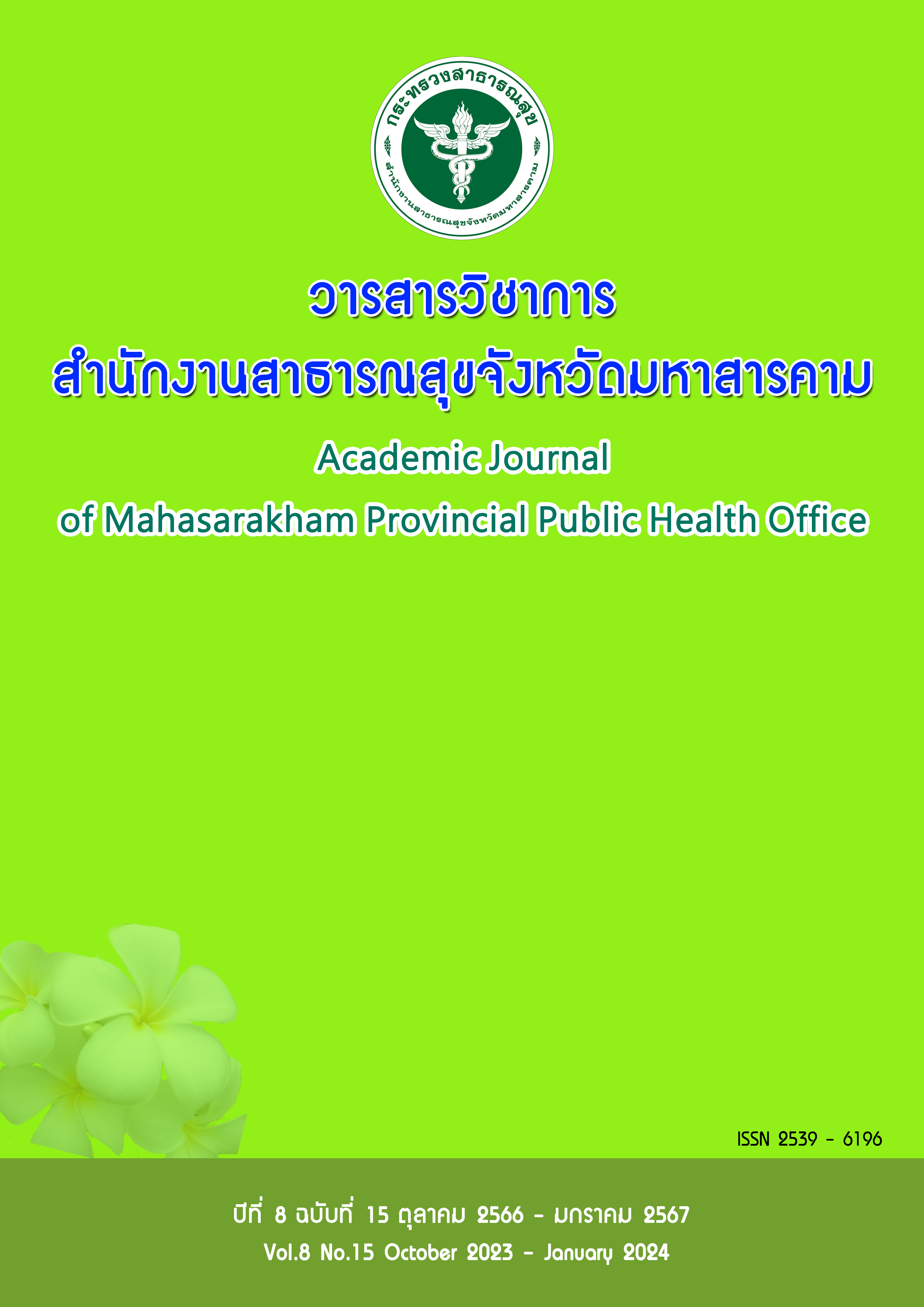Nursing Care for Patients with Acute Kidney Injury Treated with Metformin and Hemodialysis : Case Study
Abstract
Abstract
Objective : This case study aimed to investigate the nursing care of patients with acute kidney injury resulting from the administration of Metformin and subsequent hemodialysis.
Study Method : The study involved a comparative analysis of patients admitted to Trang hospital. It was conducted from November 2, 2022, to August 1, 2023, utilizing interviews, observations, and data from medical records.
Study Results : Both patients shared similar characteristics, including: 1) Medical diagnosis: diabetes, hypertension, and high blood lipids. 2) Medication: They were prescribed the same medications - Metformin (500 mg) twice daily, Glipizide (5) once daily before breakfast, Amlodipine (10 mg) once daily after breakfast, Enalapril (5 mg) once in the morning and evening, and Simvastatin (20mg) once before bedtime. 3) Signs and symptoms: The first patient presented with symptoms such as diarrhea, vomiting, and respiratory distress, while the second one exhibited mild fever, weakness, myalgia, decreased appetite, and diarrhea, commonly associated with Metformin. These symptoms resolved upon discontinuation or dose reduction of the medication. 4) Acute kidney injury: Both cases experienced acute kidney injury, leading to fluid and waste retention and hyperkalemia.
The distinction between these two patients lay in the severe metabolic acidosis and respiratory failure experienced by the first patient, whereas the second patient had metabolic acidosis without respiratory issues and maintained urine output. Both cases demonstrated common complications of acute kidney injury, including volume overload, metabolic acidosis, hyperkalemia, and accumulation of nitrogenous wastes in the blood.
Conclusion: Both patients received successful treatment through hemodialysis to reduce severe metabolic acidosis, eliminate excess fluid and waste, and restore water and mineral balance. However, complications commonly encountered during hemodialysis include low blood pressure, ranging from 15-50%, posing a significant risk that may lead to shock, loss of consciousness, or the onset of Disequilibrium Syndrome during the first dialysis session. Another potential complication is an allergic reaction to the blood filter. Nephrology nurses, therefore, play a crucial role in providing care to patients in critical condition undergoing hemodialysis as per the physician's treatment plan. This involves preparing patients and ensuring the availability of necessary equipment and medications. Nursing care focuses on maintaining the stability of the blood circulation system to support effective blood filtration according to the treatment plan. To prevent severe complications, nurses should vigilantly observe, monitor, and closely assess the patient's condition during kidney dialysis. This includes being prepared to provide assistance and promptly address emergency issues. Additionally, nurses should have the capability to assess complications and consider discontinuing dialysis for the safety of the patient.
Keywords : Acute kidney injury, metformin, hemodialysis


